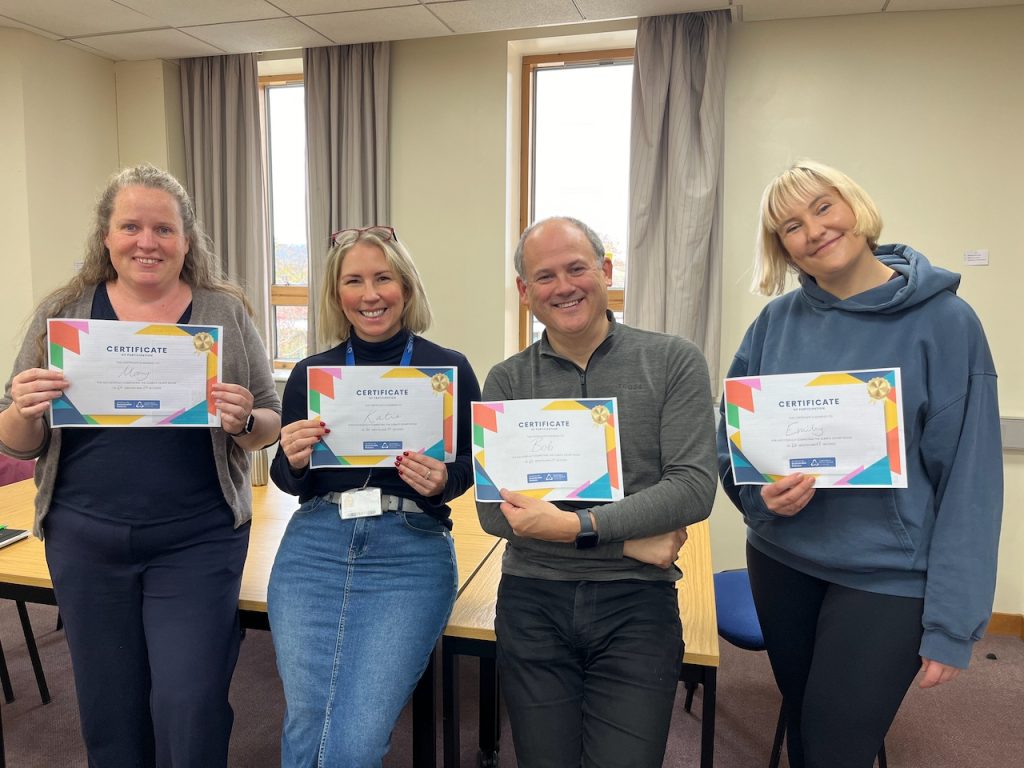Recently, four members of the Cultivating Deeper Interdisciplinary Dialogue research team (Mary, Bob, Katie, and Emily) stepped out of their usual academic roles and into a Climate Escape Room challenge. Organised by the Academy for Sustainable Futures at Canterbury Christ Church University as part of their COP29@CCCU events programme, and facilitated by enthusiastic Scientist Bethany, the experience left us inspired, informed, and brimming with new ideas for our work.

The escape room, cleverly designed with climate-themed puzzles, tasked us with navigating a web of challenges that mirrored the complex interconnections of global climate threats. From rising sea levels and biodiversity loss to energy crises and extreme weather events, we learned how these issues are intertwined and have causal links. Each puzzle required us to think critically and communicate effectively to move forward. By the end, we had not only escaped the room (with a nail-biting time of one hour and one second!) but also deepened our understanding of climate change.
This experience directly relates to our research project. As a team with backgrounds in Religious Education, History, and Music, we aim to explore how interdisciplinary approaches can foster deeper conversations around complex societal challenges. The escape room was a perfect metaphor for this: each of us brought different perspectives and skills to the table, and our collaboration allowed us to tackle the challenges in ways none of us could have achieved alone.
The activity encouraged dialogue, not only among us but also about how we might engage the teachers we’ll be working with as part of our research. How might these kinds of hands-on, collaborative experiences translate to the classroom? Could they help foster critical thinking and interdisciplinary problem-solving among students? We’re excited to explore how educators might adapt such activities to inspire their pupils and engage them with the pressing issues of our time.
What stood out most about the escape room was its positive framing. Instead of leaning into doom and catastrophising, it encouraged collaboration, cooperation, and a shared sense of agency. Everyone contributed, and this collective effort was empowering. As a final touch, we each received individual certificates highlighting practical actions we can take to address climate change and climate anxiety—an important reminder that small steps can lead to meaningful change.
For our team, this was more than just a fun afternoon, it was a demonstration of how bringing together different experiences and disciplines can yield solutions. And as we look ahead to our work with schools, we feel more inspired than ever to cultivate these deeper conversations in new and creative ways.
 National Institute for Christian Education Research (NICER)
National Institute for Christian Education Research (NICER) Bob Bowie
Bob Bowie
 1250
1250

